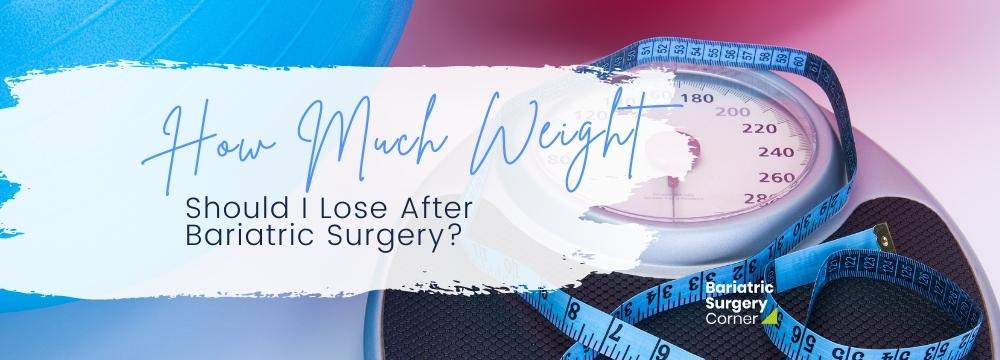
The weight loss process after bariatric surgery is different for each of us. So too, will be the journey and challenges toward our goal weight. That said, there are benchmarks that we should use to understand if we are losing enough or if we’re losing too much. However, before we get into the details of how much weight you should lose each week or each month, it’s essential to understand that weight is not the only or even best marker of success. There are many other determinants of success after bariatric surgery, including waist size, body shape, cholesterol levels, blood pressure, blood sugar, physical improvements, psychological well-being, and more.
Of course, it would be unreasonable for us to expect those who have had bariatric surgery to ignore or somehow minimize their weight loss progress. After all, measuring your weight is the most accessible (and frankly, exciting) marker – you just need a scale.
So How Much Weight Should You Be Losing?
Ultimately, your weekly goal weight loss should range between one and three pounds. That allows you to set a goal of between 50 and 150 pounds over the first year after bariatric surgery. Remember that this weight loss may be more significant in the first several weeks after surgery or if your starting BMI is very high. It may also fluctuate from one week to the next. This is all perfectly normal. We are talking averages.
Now, you may have seen some patients who have lost far more than that in their first year, and their circumstances, starting weight, procedure, and habits may dictate how they lost it. In other words, someone with proportionally more excess weight may lose it faster than you. That doesn’t mean they were more successful, or you should’ve lost additional weight. You’re just a different person starting in a different place.
You also want to consider the exercises you are performing. Remember that exercise is a long-term weight loss tool, but in the short term can slow your weight loss achievements and even make you gain weight in the earliest stages. This is because muscle is significantly heavier than the fat it’s replacing. Further, as you build muscle, primarily through strength training, you may retain additional water as your muscles expand.
How Do I Know If I’m Losing Too Much?
One surefire way to know that you are pushing yourself too hard is if you eat far fewer calories than your postoperative plan dictates, or exercise far more than you should. One of the reasons why diet and exercise alone do not work in upwards of 90% of obese people is because we tend to overdo it. With the excitement of a new diet and exercise program and the promise of significant weight loss and renewed health, we often go too far, too fast. The result is usually an unsustainable program that ends in frustration and disappointment. This frustration turns into a sense of giving up, which is why you’ve often gained back even more weight than you’ve lost after a failed diet or exercise program.
Remember, millions of bariatric procedures have been performed and documented, so your bariatric surgeon knows, with a good deal of certainty, what gradual, sustainable weight loss should look like.
Bottom Line
Follow the post-op packet!
Of course, over-eating and under-exercising are not appropriate options either, but ensuring that you get the proper amount of nutrition and exercise serves to create a sustainable weight loss program.
So, let your surgeon and your body be your guide. Rather than setting unrealistic expectations for the amount of weight you need to lose, use the guidelines supplied by your surgeon, which are based on empirical data of successful bariatric patients taken from decades of research.
Consider restraint and moderation as an investment in your future weight maintenance. Ultimately, you do not want to end up in a situation where you must concern yourself about weight regain and having to start all over again.
Once again, we turned to one of our awesome contributors, Morgan, who regained about 50 pounds of her weight after being very successful with her gastric bypass. While many would have seen this as a failure, Morgan re-dedicated herself to her health and weight loss and was able to share those pounds once again. Here’s a little bit more about how she did it.
Morgan’s Story
It’s essential to understand that weight is not the only, or even the best, marker of success. There are many other determinations of success after bariatric surgery, including waist size, body shape, cholesterol levels, blood pressure, blood sugar, physical improvements, psychological well-being, and more.
Morgan regained about 50 pounds of her weight after being very successful with her gastric bypass. While many would have seen this as a failure, Morgan re-dedicated herself to her health and weight loss and was able to share those pounds once again









